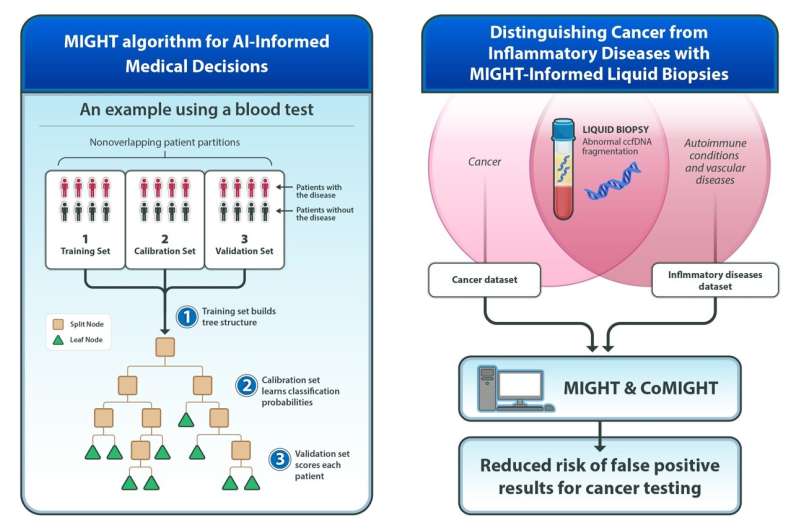One study reports on the development of MIGHT (Multidimensional Informed Generalized Hypothesis Testing), an AI method that the researchers created to meet the high level of confidence needed for AI tools used in clinical decision making.
To illustrate the benefits of MIGHT, they used it to develop a test for early cancer detection using circulating cell-free DNA (ccfDNA)—fragments of DNA circulating in the blood. A companion study found that ccfDNA fragmentation patterns used to detect cancer also appear in patients with autoimmune and vascular diseases.
To develop a test with high sensitivity for cancer but reduced false-positive results, MIGHT was expanded to incorporate data from autoimmune and vascular diseases obtained from colleagues at Johns Hopkins and other institutions who treat and study these diseases.

